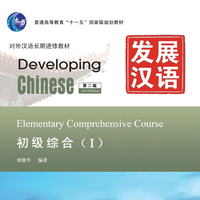15-2
15-2
15-2
15-2
15-2
15-2
15-2
马丁 : 在 天津 , 你们 吃 了 什么 ?
||Tianjin|you guys|ate||
Martin: In Tianjin, what did you eat?
汉娜 : 我们 一到 天津 就 去 了 那儿 最 有名 的 饭馆 , 吃 了 他们 的 特色菜 。
||||||||||||||||Spezialität
Hanna||as soon as||as soon as|||||most famous||restaurant||||possessive particle|signature dish
||aankwamen in||||||||||||||specialty dish
||lleguemos||||||||||||||plato característico
Hannah: As soon as we arrived in Tianjin, we went to the most famous restaurant there and ate their specialties.
马丁 : 你们 去 的 是 什么 饭馆 ?
Martin||||||
Martin: What restaurant are you going to?
他们 有 什么 特色菜 ?
|||signature dishes
What specialties do they have?
汉娜 : 我们 去 了 一家 老 饭馆 , 吃 了 天津 最 有名 的 包子 。
||||a restaurant|old|||||most|famous||steamed buns
HANNAH: Wir gingen in ein altes Restaurant und aßen die berühmtesten Brötchen in Tianjin.
Hannah: We went to an old restaurant and ate the most famous buns in Tianjin.
马丁 : 我 喜欢 吃 包子 。
Martin||||steamed buns
Martin: I like to eat buns.
汉娜 : 我们 还 去 了 一家 新 饭馆 , 我们 吃 的 都 是 素菜 。
||also|||||restaurant||||||vegetarian dishes
|||||||||||||groenten
|||||||||||||verduras
Hannah: We also went to a new restaurant, we all eat vegetarian dishes.
Hannah: Vi gick också till en ny restaurang, och vi var alla vegetarianer.
马丁 : 为什么 都 是 素菜 ?
|Why is it|all||vegetarian dishes
Martín|por qué||son|verdura
MARTIN: Warum ist das alles vegetarisch?
Martin: Why are all vegetarian dishes?
汉娜 : 为了 环保 啊 , 少吃肉 。
||Umweltschutz||
|for the sake of|environmental protection|emphasis particle|Eat less meat
||milieu bescherming||Eet minder vlees
|por|medio ambiente||
Hannah: Der Umwelt zuliebe sollte man weniger Fleisch essen.
Hannah: For the sake of environmental protection, eat less meat.
马丁 : 味道 怎么样 ?
Martin|taste|is the taste
|sabor|
Martin: How is the taste?
汉娜 : 味道 好极了 。
||heerlijk
Hanna||
|taste|so good
||está delicioso
Schmeckt großartig.
Hannah: It tastes great.

